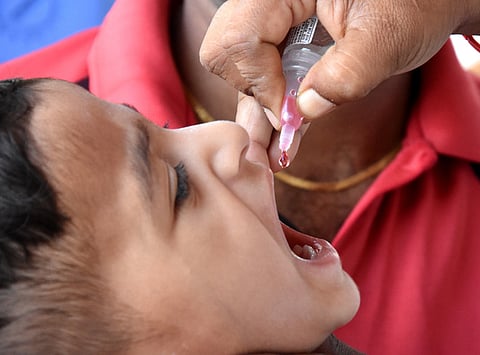

`NEW DELHI: The latest WHO and UNICEF estimates of national immunisation coverage (WUENIC) data has said that India’s antigen-wise coverage is better than that of the world average for all antigens for 2023, sources said.
Government sources said India’s population, multiple times more than several nations, was ignored while comparing children’s vaccination data with 19 other countries in the latest WHO and UNICEF estimates.
“Even though India has the second highest number of zero-dose children in the world, it accounts for 0.11% of the country’s total population,” Union health ministry sources said.
Sources were reacting to the WUENIC data released on Monday, which stated that India had the second-highest number of children, nearly 16 lakh, who did not receive any vaccine in 2023, just after Nigeria, which had 21 lakh zero-dose children. “The comparison is flawed as the base population has not been taken into consideration,” said a source.
The WUENIC data showed that India’s rank improved from 2021 when the country had recorded the highest number of zero-dose children globally at 27.3 lakh.
Zero-dose children are defined as those who lack access to or are never reached by routine immunisation services. While Pakistan is in 10th position, China is in the 18th.
India ranked number 1 out of 8 countries with 1,592,000 zero-dose children. It is 45 per cent higher than 1.1 million such children in 2022. Childhood vaccination coverage globally stalled in 2023, leaving an estimated 2.7 million children more un- and under-vaccinated than pre-pandemic levels in 2019, said a joint global immunisation report released by WHO and UNICEF.
According to officials, India’s immunisation programme strengthened its focus on areas with low coverage through intensified microplanning compared to 2022. “The zero-dose implementation plan was initiated in those districts of the country with the highest burden of unimmunised or partially immunised children.”
“These initiatives are expected to deliver positive results in terms of increased immunisation coverage over the next few years to ensure full immunisation coverage for every child,” the officials added.
On Tuesday, the World Health Organisation called on Southeast Asian countries to further strengthen efforts at all levels, with tailored approaches at sub-national levels, to identify and immunise unvaccinated and under-vaccinated children.
As per the latest global data, in 2023, nearly 3.4 million children did not get all vaccines being offered under the childhood immunisation programme, with 2.7 million among them not getting any vaccines, leaving them vulnerable to life-threatening diseases.
“The increasing numbers of unvaccinated children calls for urgent and accelerated action. We need to prioritise reaching them at the earliest. No child must fall sick of any preventable disease when effective vaccines exist to protect them,” said Saima Wazed, regional director of WHO South-East Asia.